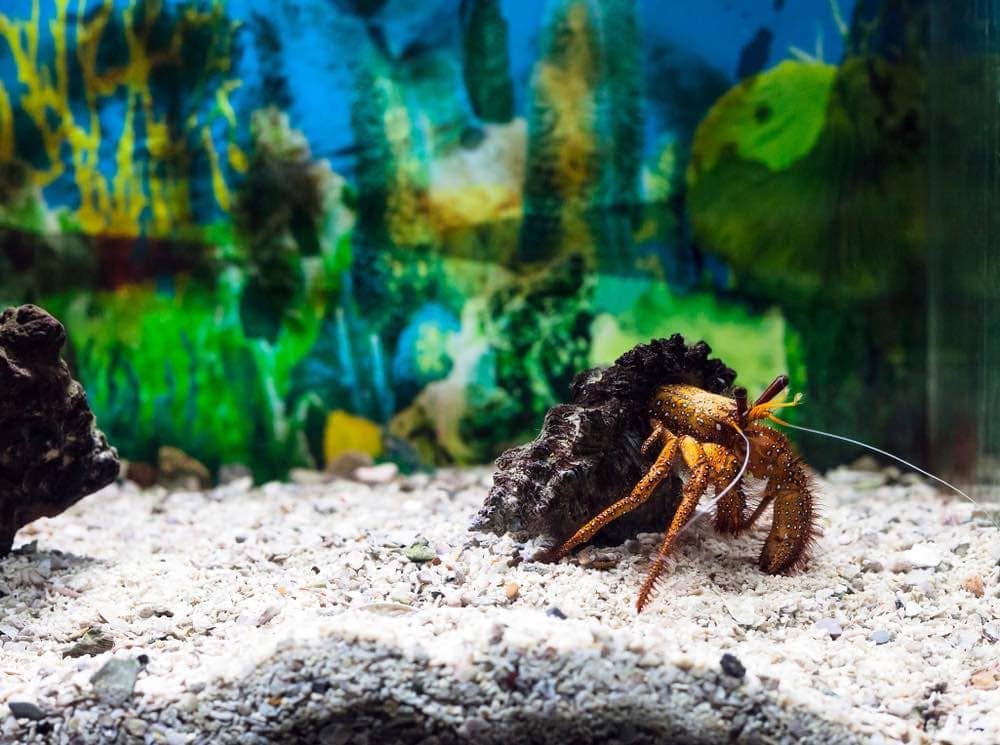Why Does My Cat Watch Me Shower? Feline Behaviour Explained

Updated on
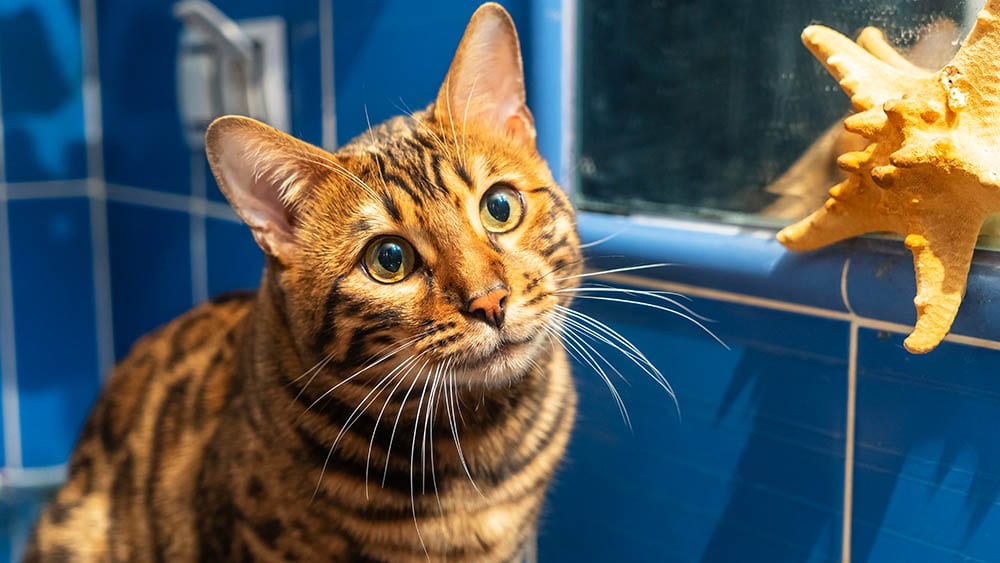
As pets, cats provide us with endless love and amusement. Although they’re domesticated, cats still possess wild traits that make them behave in odd ways. Veterinary behaviorists are devoted to studying cats’ minds, but the animals are complex subjects, and several mysteries remain. You’re not alone if you’re perplexed why your pet stares at you in the shower or bath.
Several pet parents have witnessed the same behavior, but what does it mean? Cats enjoy visiting the bathroom with you for curiosity, warmth, affection, and proximity to the litter box. Staring at you in the shower seems strange, but it’s not uncommon or something you should worry about.
Possible Reasons why Your Cat Stares You While Showering
1. Feline Curiosity
The saying, “curiosity killed the cat,” has a grain of truth, but it’s mostly inaccurate. Cats can become injured when they consume a chemical or foreign object, but curiosity is a significant part of the animal’s being. The bathroom may be part of what the animal considers its territory, and when you turn on the shower, your pet wants to see what you’re up to.
Clingy pets who cannot allow their owners to leave their sight may be more likely to follow them into the bathroom, but even independent-minded furballs inspect their environment. A healthy feline purrs, rubs against its owner, kneads the furniture, and displays a curious nature.
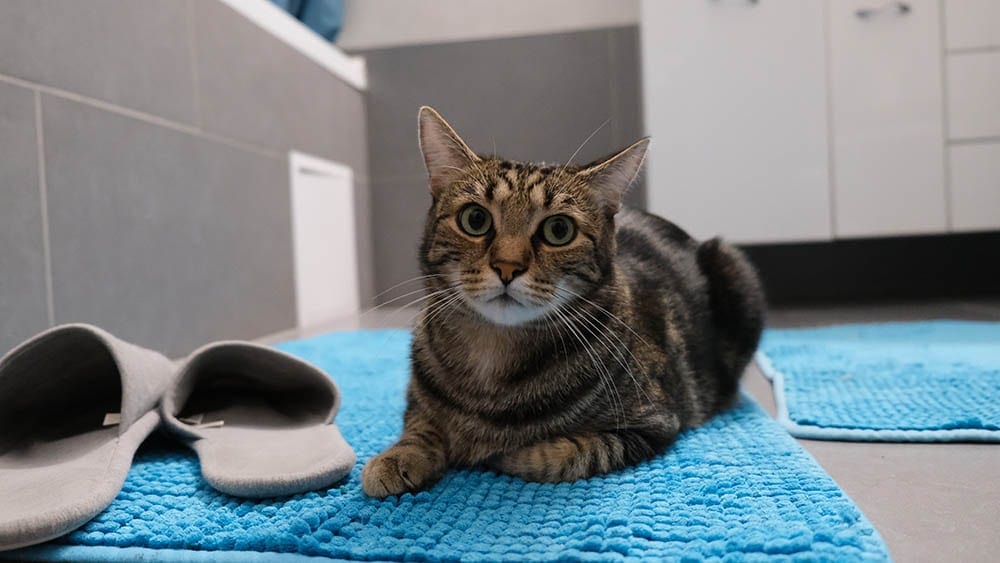
2. Seeking Attention
If your pet repeatedly peeks its head through the shower curtain or meows until you’re finished, you may think it’s irritating but it’s only a sign that the animal enjoys your company. When you enter the bathroom, your cat may see it as a chance to spend time with you in a quiet room away from the other family or roommate activities. When you’re alone in the house watching television or typing on the computer, your cat probably tries to grab your attention in the same way.
It may stand beside you and stare or try jumping in your lap. The bathroom is a private room for humans who feel vulnerable when showering or using the toilet, but your pet sees it as just another room where it spends quality time with you.
3. Routine Interruption
Cats like their established routines, and some feel anxious when you take a shower in the same room as their litter box. Like humans, cats do not enjoy using the restroom with an audience. Whether you’re interrupting a litter box session or merely showering when the cat is in another room, your pet may think your actions are an invasion of its territory. It’s challenging to place the litter box in a quiet area other than the bathroom, but you should consider moving the box away from the restroom if your cat seems stressed when you shower.
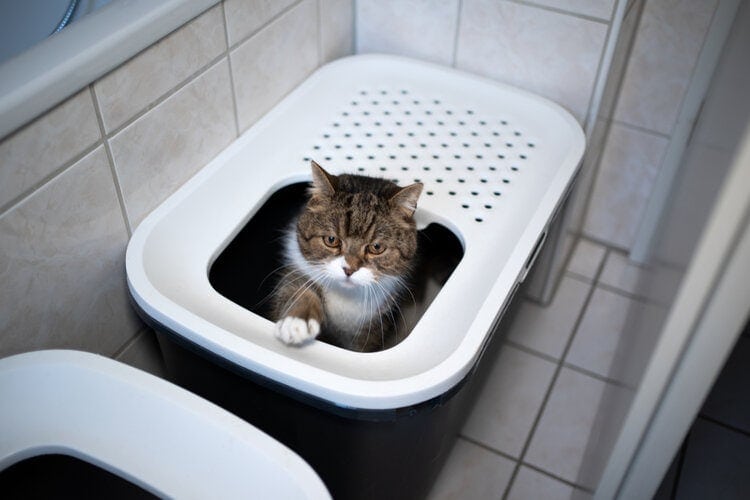
4. Hiding Spot
Most cats like the cool tile and ceramic in the bathroom, and some will play in the tub or sink when they’re alone. Depending on the layout of your residence, the restroom may be one of the few rooms where the cat can hide or escape the noise of the occupants. When you enter its favorite hiding spot, your cat will naturally wonder what you’re doing.
If you prefer to bathe without feline supervision, you can set up a special quiet area in your home with a cat bed, toys, and a soft blanket. It will take several days or weeks for your cat to transition to a new hiding spot, but you can provide treats when the animal stays in the room as you shower.
5. Running Water and Water-Loving Cats
When cats have issues drinking from their water bowls, owners can purchase water fountains to ensure they stay hydrated. Although most breeds are not fond of bathing, some prefer running water over stagnant pools. When they hear the shower, they may run to the bathroom in excitement and even try to paw at the water while you shower. Some veterinarians suggest that there is an evolutionary basis to the behavior. In a natural setting, running water is more likely to be clean than stagnant water, and behaviorists claim that house cats may be drawn to running water even though they do not want to be drenched by it.
Another reason your pet joins you in the bathroom could be that it enjoys the water. Dogs are more tolerant of water than felines, but several cat breeds love to play in the water and get soaked. Some of the species that love water include:
- Bengal
- Siberian
- Manx
- Maine Coon
- Turkish Angora
- Selkirk Rex
- Siamese
- Japanese Bobtail
- Burmese
- Egyptian Mau
- Norwegian Forest Cat
- American Bobtail
- American Shorthair
- Highlander
- Abyssinian
- British Shorthair
- Savannah
- Sphynx
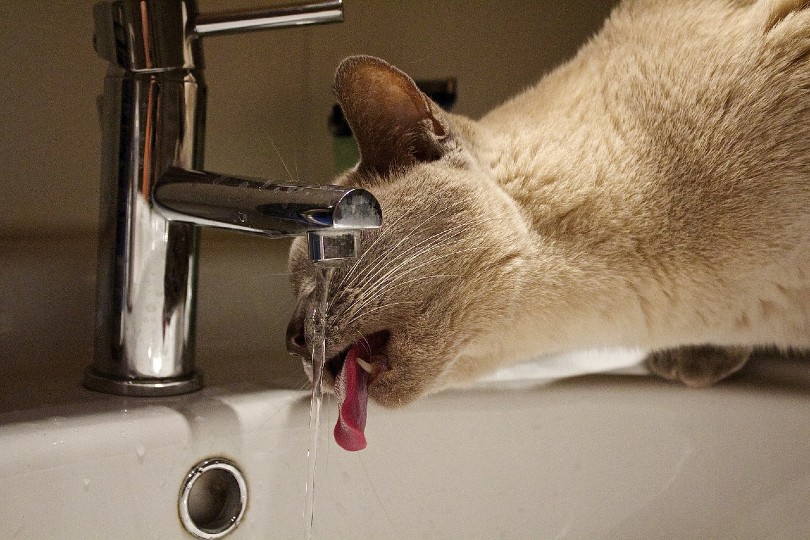
5. Warmth
Not all felines are lap cats, but all cats seek warm places and objects. Compared to people, cats have a higher body temperature (102°F). Although a small percentage of humans prefer cold showers, most like hot, steamy ones. The warmth from the shower is appealing, and your pet may want to share the experience with you from a safe distance.
Training Your Pet to Avoid the Bathroom
Following you into the shower may be a habit that your pet adopted when it was young, and it’s likely to continue for most of its life. As we discussed, cats like to maintain a routine, and it will take you a while to convince your pet to stay away from one of its favorite spots.
1. Restricting Access
It may be agonizing for your cat initially, but you can keep the door closed and possibly locked if your feline can open doors. Before your shower, play with your pet for a few minutes and lead it to another room with a treat. Try to ignore your cat’s cries and scratching at the door while you shower and follow the same routine every day. When your pet finally sits quietly outside the door, reward it with another snack. Eventually, the animal may not find your bathroom activity as fascinating as before.
2. Moving the Litter Box
Cats prefer a well-lit, quiet area to use the bathroom, and you can move the box away from the shower if you want more privacy for your pet. A dark basement or attic is unappealing to most felines, and some may develop an aversion to urinating or defecating if the environment is unsuitable.
Although a bedroom or family room may not seem like an aesthetically pleasing spot for a litter box, it may help your cat feel more comfortable and prevent your pet from peeing on the couch or carpet. Cleaning the box every day and staying away from your cat when it uses the bathroom can also minimize the urge to use the restroom away from the litter box area.
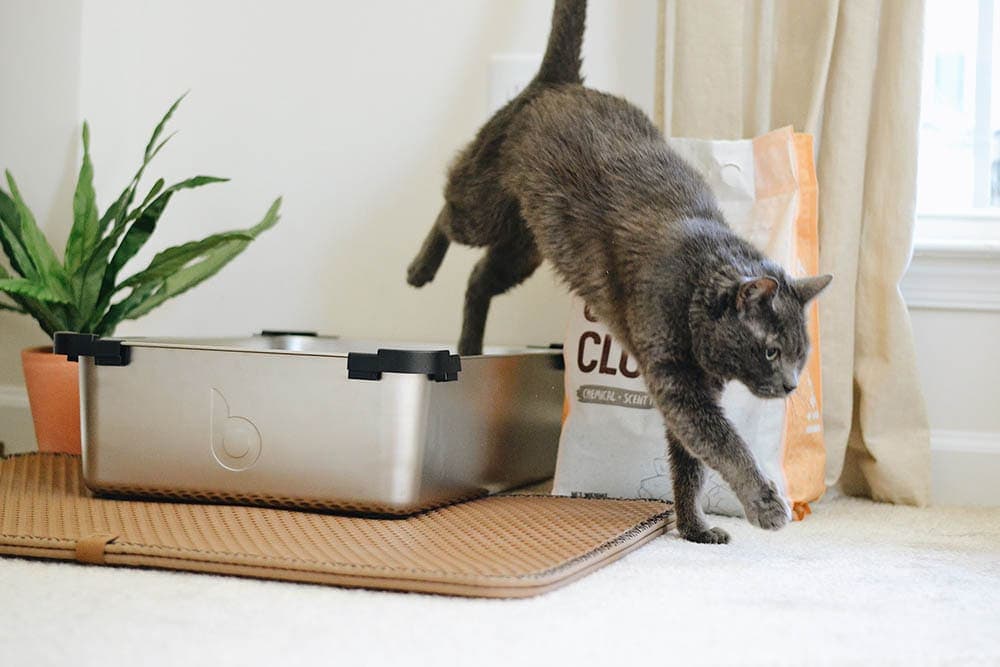
3. Playing Games
Although some cats seem more affectionate than others, all pets need attention from their owners. If you’ve been too busy to play with your cat, it may seek you out when you’re in the shower. Indoor cats need daily exercise to stay healthy, and they also need mental stimulation from their family. You may discover that maintaining a daily play routine with your pet will reduce its tendency to follow you into the shower.
4. Creating a Safe Zone
When a loud noise or stranger frightens your pet, the animal probably runs for cover. Cats need a comfortable hiding area that they can use to escape the chaos of your home. A quiet room with a cat bed or condo is ideal for your pet, and you can encourage it to warm up to the new area by providing treats when it walks into the room to relax.
Final Thoughts
Supervising your activities in the bathroom may seem like a strange feline habit, but it’s not uncommon or something that should be concerning. A curious cat wants to keep track of its loved ones, and your shower time may be an opportunity for a friendly visit. You can prevent your cat from bothering you in the bathroom, or you can accept it as a sign that the furball likes being around you, even in awkward settings.
Featured Image Credit: kalyanby, Shutterstock




